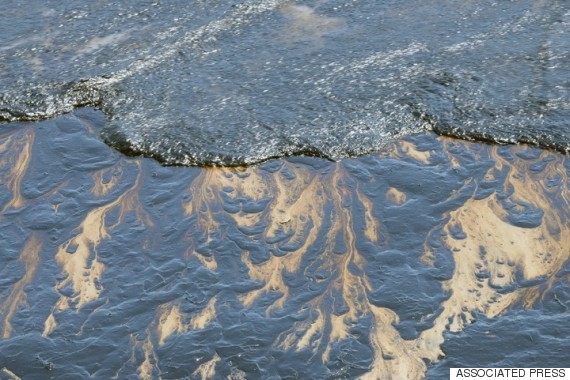The National Energy Board (NEB) has announced a review of emergency response measures at Kinder Morgan, the corporation whose pipeline expansion would lead to a sevenfold increase in oil tanker traffic at the port of Vancouver tanker traffic.
300,000 barrels of oil flow a day from Alberta. Kinder Morgan’s proposal to twin the line would move 890,000 barrels. It would mean oil traffic in Vancouver would increase from five tankers per month to 34.
http://globalnews.ca/news/900601/kinder-morgan-pipeline-expansion-will-i...
This is another attempt to reassure the public that everything is fine after the Engiish Bay oil spill debacle. Seven Metro Vancouver mayors and even Premier Christy Clark have questioned the obviously non-world class oil spill response system currently in place.
ETA: The NEB CEO admits that its approach may be "stuck" in the past and need review. However he goes on to reasure everyone that the NEB will rely on the fossil fuel industry to come up with a new set of best practices with regard to monitoring pipelines and dealing with oil spills. He also notes that he has no mandate to deal with climate change or the amount of oil being produced in Alberta.
With such reassurances everyone can go back to sleep and forget about the English Bay oil spill and the closure of the Kitsilano Coast Guard station.
The National Energy Board plans to conduct an audit of the emergency response program at Kinder Morgan Canada’s existing facilities, board chairman and CEO Peter Watson told The Vancouver Sun, as the agency looks to give more of a public face to its regulatory work.The audit, which could take up to a year with its results made public at the end, will be part of the NEB’s regular work in monitoring the compliance of pipeline companies, and not contribute to the board’s public review of Kinder Morgan’s $5.4-billion proposal to twin the Trans Mountain pipeline and double its capacity. ...
Premier Christy Clark was among those expressing dissatisfaction about the amount of information being made public, and while Watson said there are reasons for keeping some information under wraps, he agreed the public should know more about such plans and vowed to correct the situation.
“We’ve done certain things a certain way for so long, and maybe we’re stuck,” Watson said during a Sun editorial board meeting.
“I’ve already said in some stories that I’m not happy with the information that’s out there publicly,” and he has called on the industry, through the Canadian Energy Pipeline Association, to come up with a new set of “best practices,” which he will take to public consultation.
However, whether Watson’s efforts sway the views of Metro Vancouver critics remains to be seen. The NEB’s decision last fall allowing Kinder Morgan to conduct exploratory drilling on Burnaby Mountain, over the City of Burnaby’s objections, touched off weeks of protests.
And seven Metro Vancouver mayors, including Gregor Robertson and Burnaby Mayor Derek Corrigan, at the end of March signed a statement of non-confidence in the Trans Mountain review and called on the federal government to stop it.
With 400 registered interveners “that are actively engaging and following every step,” Watson said the Trans Mountain review is probably the biggest the NEB’s history, so its panel had to find a way of keeping it effective, fair and transparent for all of them. ...
Critics are trying to pull in elements that are not part of its mandate in reviewing the proposed pipeline facilities, Watson argued, such as climate change. Upstream production from Alberta’s oilsands is a provincial jurisdiction he won’t wade into.
http://epaper.nationalpost.com/epaper/viewer.aspx






